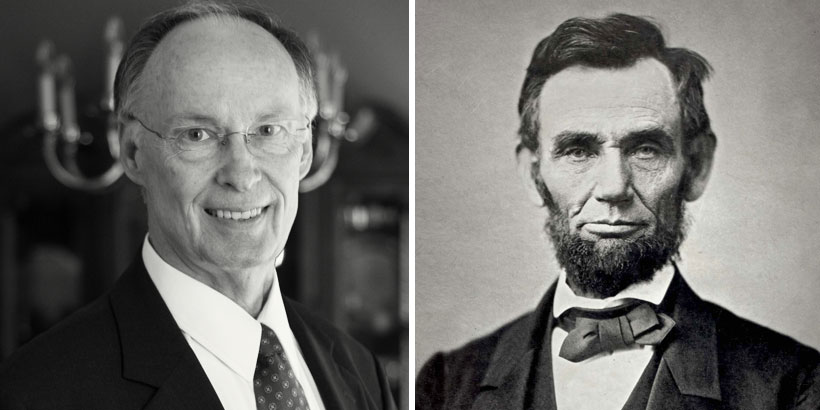
Nearly all men can stand adversity, but if you want to test a man’s character, give him power. – Abraham Lincoln
Gov. Robert Bentley this week called a Special Legislative Sessions for the sole purpose of passing a statewide lottery.
For some, Bentley’s announcement sparked the opportunity for a do-over. The lottery failed as a statewide referendum in 1999 and proponents have been clamoring for another chance ever since.
For others, it signaled the start of yet another dreaded battle over an issue that just won’t die.
For all, it was a reminder that this governor is completely devoid of the credibility and moral standing necessary to lead this state.
By almost all accounts, the Robert J. Bentley who ran as a long-shot candidate for governor in 2010 was the man he portrayed himself to be: A caring, church-going family man who wanted to be the doctor to cure what ailed his state.
By almost all accounts, the man who stands before us today is but a sad shell of his former self.
Many have placed the blame for this transformation on a woman. But Mr. Bentley’s willingness to throw away his marriage of 50 years for an illicit affair with a married staffer is but a symptom of a much deeper issue: His character was not prepared to endure the power with which he has been entrusted. The philandering and lying are just some of the ways this deeper character flaw has manifested itself.
When running for office in 2010, Mr. Bentley had this to say about the lottery and gambling in general:
“Taxing gambling is not the answer. There is not a single state in the country that has benefited from gambling.”
When he was trying to push a $700 million tax hike plan last year, he added this:
“We cannot depend on gambling for the 2016 budget, or really for future budgets.”
And now he is telling us this:
“(The lottery) is our best chance to solve this problem.”
“This solution will provide funding that we can count on year after year without ever having to raise taxes or put one more Band-Aid on the state’s money problems,” he added.
He knows this statement is simply not true. Mr. Bentley estimates the lottery will bring in upwards of $200 million annually. Even if that is the case — and it’s probably not — at the rate Medicaid is growing, that money will be devoured in a matter of a few short years.
This is, of course, not the first time Mr. Bentley has been untruthful with the people of Alabama. We are talking about a politician who proposed what would have been the largest tax hike in the state’s history while his website still had his “No New Taxes!” campaign pledge plastered all over it.
Public trust in government continues to hover near historic lows, and Alabama-based, New York Times bestselling author Andy Andrews says he believes it has a lot to do with politicians becoming more and more willing to outright lie.
“Our nation is at a tipping point,” said Andrews. “Frankly, I believe candidates from both parties have lied to the American people. Furthermore, I believe that many are slipping dangerously close to creating a habit of lying and rationalizing that their purpose in doing so is for their own good.”
In his 2012 book titled “How Do You Kill 11 Million People?” Andrews uses the horrific example of Nazi Germany to illustrate what can happen when the electorate disengages and become “sheeplike in following their leadership.”
“The question every American should be asking is, ‘What is our standard for being led?’” Andrews said. “We need to think about that in earnest, because that one question will lead us to common ground… The main purpose of this book is to find that one universal theme we can all agree on: Our politicians must not lie to us, anymore. And we build from there.”
In addition to his “character and power” quote, Lincoln also said of sticking to his principles, “I am not bound to win, but I am bound to be true.”
It’s hard not to think how much better shape Alabama had been in if Robert Bentley had been the living embodiment of that second Lincoln quote, rather than a cautionary tale of the first.
Note: As with many historical quotations, there are conflicting opinions on whether President Lincoln said this famous “character and power” quote himself, or if it was only said of him at the time, and many times since.












